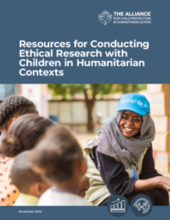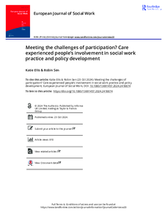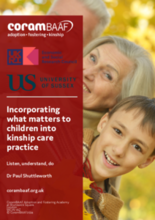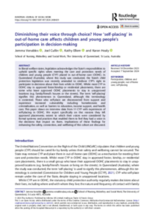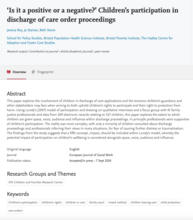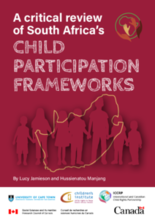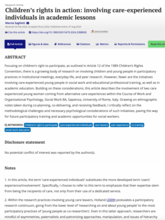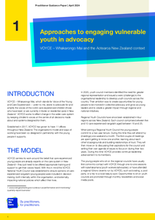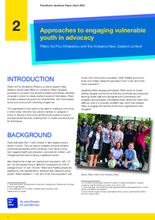Displaying 21 - 30 of 375
This Resource List catalogues critical resources to guide ethical good practices in participatory research with children in humanitarian contexts. It is not an exhaustive compilation, nor does it propose new ethical guidelines. Instead, it highlights existing tools that help researchers and practitioners understand, utilise, and apply well-established ethical principles.
This paper considers attempts to influence practice and policy from the perspectives of 15 care experienced people who had been involved in substantive public campaign work relating to children in state care and care leavers in Scotland and England. Participants shared their experiences of working to influence change and highlighted good and bad practice that they had encountered working with different individuals and organisations claiming to promote the views of those with lived experience.
This kinship care practice guidance was developed by listening to children's views. It is a practical guide to listening to children living in kinship families to help ensure that their voices and views are heard and acted upon. It is intended primarily for those who support children and families in kinship care arrangements, but it also applies to other areas of child welfare practice.
This paper draws on the experiences of children and young people (CYP) who have self-placed in out-of-home care (OOHC) in Queensland (Australia) and the impact of that choice on their participation in decision-making.
This paper explores the involvement of children in discharge of care applications and the tensions children’s guardians and other stakeholders may face when aiming to both uphold children’s rights to participate and their right to protection from harm.
This report interrogates the normative framework governing child participation in South Africa. It provides an analysis of international human rights obligations under the Convention on the Rights of the Child and the African Charter on the Rights and Welfare of the Child.
This article explores the opportunities social workers have to involve care-experienced individuals in participatory training and academic opportunities by sharing the stories of two young women with care experience who were attending the University of Rome.
This CPC Learning Network hosted a conversation with partners and faculty affiliates on "Rethinking Child & Youth Participatory Methodologies & Processes: Presentations from our Partner Research Centers in Uganda, Indonesia, and Colombia".
This practitioner guidance paper details the work of the VOYCE – Whakarongo Mai centres in New Zealand which centres its work around the belief that care-experienced young people are already experts on the care system – they just need to be offered appropriate training and support to get their voices heard.
This practitioner guidance paper outlines the work of the Pillars Ka Pou Whakahou -- a charity based in New Zealand that provides support for the children and families of those in prison by providing wraparound support for these families, with home-based social work and a youth mentoring programme.

